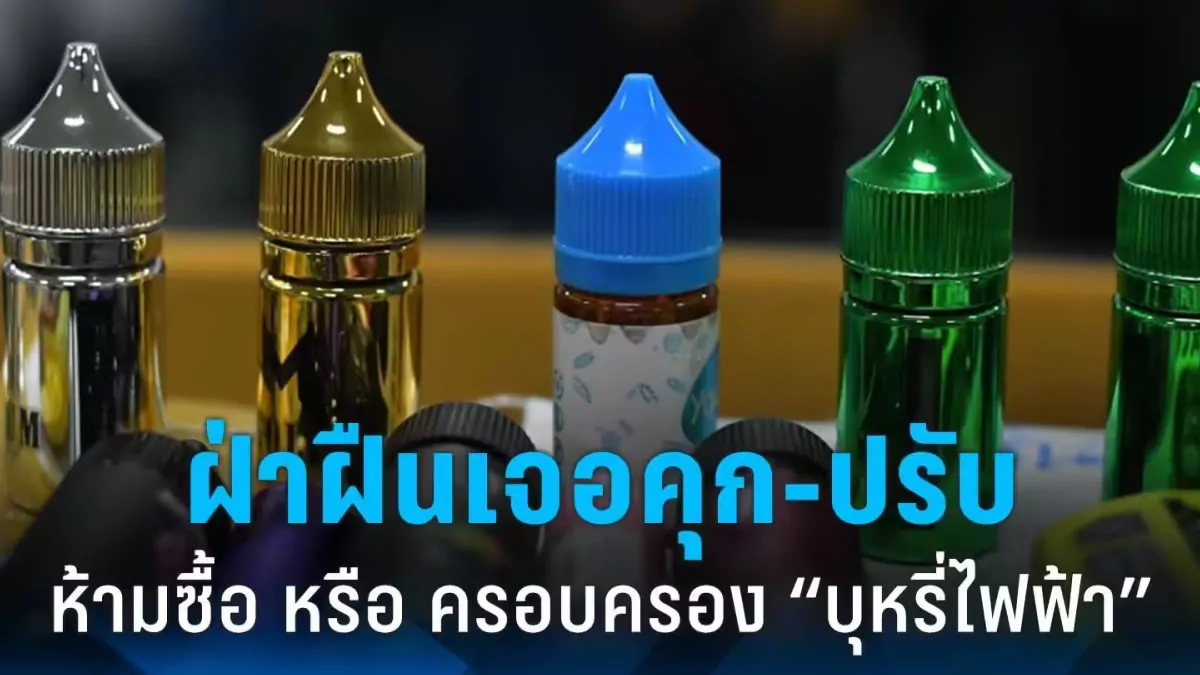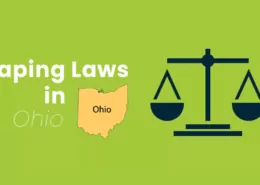Vaping Laws In Thailand – Is Vaping Legal in Thailand? (updated Mar/2025)
Thailand maintains some of the strictest vaping laws in the world. E-cigarettes (vapes) and related devices are banned in the country, and tourists should be aware of the serious legal risks of bringing or using them during their visit. The following guide explains the current legal status of vaping in Thailand, the laws behind the ban, penalties (with real examples), common misconceptions, recent crackdowns, and practical advice for travelers.
Legal Status of Vaping in Thailand
In Thailand, the use, sale, and possession of electronic cigarettes are strictly illegal. The Thai government introduced a ban on e-cigarettes in 2014 and has upheld it ever since. This ban covers all types of vaping products – including e-cigarette devices, nicotine liquid refills, and heated tobacco devices like IQOS. In other words, vaping is not allowed anywhere in Thailand, for locals and foreigners alike. Anyone found using or carrying an e-cigarette in Thailand can be arrested and face jail time or fines several times the value of the device. The government originally justified the ban on public health grounds – officials warned that e-cigarettes could lure young people into nicotine addiction and wanted to prevent new smokers. Despite debates over the years, Thailand’s stance remains unchanged: vapes are prohibited in the Kingdom.
Relevant Laws and Legal Framework
Thailand’s vaping ban is backed by multiple laws and regulations. Key elements of the legal framework include:
- Consumer Protection Law – Ban on Sales (2015): In 2015, Thailand’s Consumer Protection Board issued Order No. 9/2015 (en) outlawing the sale and service of e-cigarettes and related products. This made it illegal to buy or sell e-cigarettes in Thailand. (Notably, a 2019 amendment to the Consumer Protection Act removed the specific sections used to enforce this sales ban. However, no law ever legalized e-cigarette sales afterward, so authorities continue to treat selling vapes as unlawful in practice.)
- Ministry of Commerce Notification (2014) – Ban on Import: Even before the consumer law, a 2014 Ministry of Commerce notification prohibited the importation of e-cigarettes and electronic hookahs into Thailand (en). Importing vapes is a crime – bringing a vape into the country (in luggage or by shipment) violates this import ban.
- Customs Act B.E. 2560 (2017): The Thai Customs Act imposes severe penalties for importing banned goods. Since e-cigarettes are prohibited, anyone caught smuggling or bringing in such devices can be prosecuted under customs law. The law provides for up to 10 years imprisonment and fines up to five times the value of the items for illegal importation. In short, if you fly to Thailand with a vape in your bag, you are risking serious charges.
- Tobacco Control Act B.E. 2560 (2017): Thailand’s Tobacco Products Control Act (which raised the smoking age to 20 and restricts smoking in public places) does not legalize e-cigarettes. E-cigarettes are not recognized as legal tobacco products in Thailand’s regulations. In fact, the National Tobacco Control Board and Health Ministry have repeatedly affirmed that the ban on vaping products remains in place as an important measure to protect public health. So, while traditional cigarettes are regulated (with heavy taxes and smoking-zone rules), electronic cigarettes are outright banned by separate directives.
Together, these laws make the legal status of vaping in Thailand very clear: it is forbidden to import, sell, supply, possess, or use e-cigarettes in the country. The ban is comprehensive, and there are multiple overlapping legal provisions that authorities can use to charge violators – from customs violations to consumer protection and other regulations.

Specific Penalties and Real-Life Enforcement Cases
Thai law provides harsh penalties for anyone caught with e-cigarettes. The exact punishment can vary based on the circumstances (for example, whether someone is deemed an importer, seller, or just a user in possession), but all are severe. Authorities have outlined the following maximum penalties for vaping-related offenses:
- Possession/Personal Use: Simply holding an e-cigarette (or vaping in public) is treated as an offense. Those found with vaping devices can face up to 5 years in prison and a fine equal to five times the value of the seized items. In practice, police often impose on-the-spot fines (several thousand baht) for people caught using vapes, but they technically have the power to arrest and charge you criminally.
- Importation/Smuggling: Bringing e-cigarettes or vape liquid into Thailand (or arranging for someone else to bring them) is considered illegal importation. The penalties are extremely high – up to 10 years imprisonment and fines up to five times the value of the goods smuggled. For example, if someone tried to bring in a vape kit worth 2,000 baht, the fine could reach 10,000 baht or more, plus jail time. (For large-scale smugglers, this can mean fines in the millions of baht.)
- Selling or Distributing: Selling, trading, or supplying e-cigarettes within Thailand is also a serious crime. Offenders face up to 10 years in prison and a monetary fine of up to ฿500,000 (500 thousand baht) under Thai law. Even storing a stock of vapes for sale is punishable. In recent crackdowns, dozens of shop owners and vendors have been arrested for offering e-cigarettes to customers.
These penalties are not just on paper – there have been real cases of enforcement against travelers and locals, underscoring the risks:
- On-the-Spot Fines: Many tourists report being stopped by police and fined for vaping. For instance, in early 2023 a foreign tourist in Pattaya was detained by police for possessing a single vape pen. The officer initially demanded a ฿60,000 fine, and after “negotiation” the tourist paid ฿30,000 to settle the matter. (Vaping devices are officially “prohibited goods” in Thailand, which was the basis for the fine.) Such incidents often amount to informal extractions or bribes – nevertheless, they illustrate that being caught with a vape can cost a traveler hundreds of US dollars.
- Arrest and Court Prosecution: There have been cases of visitors actually arrested and taken to court for vaping. In one notable 2019 case, a French woman was stopped for using an e-cigarette and refused to pay a bribe to police. She was arrested and spent a couple of days in jail awaiting trial. In court, the judge imposed a relatively small fine of ฿827 (about €23) for the offense. However, the ordeal did not end there – because she now had a criminal conviction, Thai Immigration detained her and deported her from Thailand. She was held in an immigration cell for four days and had to pay roughly ฿286,000 (around €8,000) in various fees and travel costs to secure her release and flight home. This case shows that even if the official court fine seems minor, the consequences of a vaping charge can be drastic – including jail time, a ruined vacation, deportation, and huge expenses.
- Group Arrests: There have also been instances of multiple tourists caught together. Thai media reported that in 2017, four foreign tourists in Phuket were arrested for vaping, with total fines around ฿100,000 among them. Such group arrests are less common than individual fines, but they do happen when enforcement sweeps occur.
These examples highlight a key point: breaking Thailand’s vape ban can ruin your trip. You might be lucky and get away with a warning, but you could also face a hefty fine on the spot or even a trip to the police station and court. The law technically allows for multi-year imprisonment, and while tourists are usually more likely to be fined than jailed long-term, even a short detention and legal process can be very frightening and costly. Bottom line: the risk is not worth it.

Misconceptions About Vaping in Thailand
Given how common vaping is in many countries, there are several misconceptions that travelers might have about Thailand’s e-cigarette laws. Let’s clear up some of the common myths:
- “Vaping is only illegal to import or sell, but personal use is okay.” – This is false. While it’s true that Thailand’s ban was implemented via import and sales laws, in practice possession and use are also treated as crimes. The ban covers all aspects of e-cigarettes (import, sale, possession, and use are all prohibited). If you have a vape in Thailand, authorities assume it was imported illegally (since there’s no legal way to buy it there), so you can absolutely be penalized just for having or using it. In the eyes of Thai law, there is no distinction that spares personal vaping – any vaping is illegal.
- “I see a lot of people vaping in Bangkok and Phuket, so it must be unofficially allowed.” – This is a dangerous misconception. It’s true that in recent years vaping became visibly more common in Thailand – many locals and expats started using e-cigarettes somewhat openly, and some shops (under the table) sold vape devices. For a time, active enforcement by police had lulled, creating an impression that the ban wasn’t strict. However, that doesn’t mean it was legal or safe. In fact, the law was still on the books, and at any moment police could crack down – which they eventually did again. The apparent prevalence of vapers in nightlife or tourist areas does not change the legality. Tourists should not assume that copying what some locals do will be tolerated. Enforcement can be inconsistent, but when you’re the one caught, you’ll face the consequences. Always remember: even if others are doing it, vaping remains illegal and you are taking a big risk by joining in.
- “If I get caught, the worst that can happen is a small fine or a bribe.” – Don’t count on it. While some travelers have paid on-the-spot fines (฿5,000–30,000) to resolve the issue, others have ended up under arrest. You might encounter an officer who is not willing to settle for a quick fine. Legally, you could be detained and charged, which means at minimum spending a day or two in custody and going to court. As described earlier, one tourist’s refusal to pay a bribe led to jail and deportation (and thousands of dollars in costs). Moreover, Thailand in recent times is trying to crack down on bribe culture – if an incident draws public attention, the involved police can face investigation, which means they’ll be more likely to process you through official channels (court) instead of releasing you. In short, you cannot assume it will just be a quick fine. The law provides for very steep penalties, and you may have little control over how far things go once you’re caught.
- “I can buy a vape or juice once I’m in Thailand to avoid bringing one through the airport.” – This is not a safe plan. It’s true that an informal market for e-cigarettes exists in Thailand – hidden vape shops or vendors in some tourist spots will sell devices or liquids. However, these are black-market operations, and by purchasing you are engaging in an illegal transaction. Police have conducted stings and raids on local sellers, especially in 2024–2025, and both sellers and customers can get in trouble. In a recent nationwide sweep, hundreds of Thai sellers were arrested and nearly half a million vape products were seized. If you happen to be in a shop when a raid occurs, or if an officer catches you right after you’ve bought the item, you could face charges for possession. Remember that any vape in Thailand is contraband. There is no “legal way” for you to obtain one in the country, and buying one on the street is just as risky as bringing one in your luggage.
- “Thailand legalized cannabis in 2022, so maybe vaping (nicotine) is no big deal now.” – It might seem ironic, but Thailand’s permissiveness toward cannabis has no bearing on e-cigarette policy. Cannabis was decriminalized under a public health initiative, but electronic nicotine products remain firmly banned. In fact, Thai authorities often point to health concerns specifically around vaping (such as youth usage and unregulated chemicals) as reasons to uphold the ban. Culturally and legally, Thailand treats smoking cessation gadgets very differently from how it treats marijuana. Do not assume that because one thing became legal, others did too – the law on vapes is separate and still very strict.
In summary, do not let misconceptions fool you. Vaping is illegal in Thailand, full stop. Many people have learned this the hard way. Always err on the side of caution and follow the official law, not the crowd or rumors.

Enforcement Actions and Recent Crackdowns (2024–2025)
In the past couple of years, Thai authorities have significantly stepped up enforcement of the vape ban, dispelling any notion that it might be quietly lifted. Here are some of the notable enforcement developments in 2024–2025:
- High-Profile Incidents Sparked Public Outcry (2023): In January 2023, a case involving a Taiwanese actress (caught with e-cigarettes in Bangkok) made international headlines. She reported that police officers extorted her and her friends for bribes to avoid arrest. The incident caused public criticism of both the police corruption and the country’s harsh vaping laws. As a result, Thai officials publicly reaffirmed that vapes are illegal and promised to address any misconduct. This episode put a spotlight on the issue and set the stage for stricter oversight.
- Government Reaffirms the Ban: Throughout 2023 and 2024, Thailand’s Ministry of Health and related agencies repeatedly reiterated that the vaping ban will continue. For example, in late 2022 the Health Ministry specifically stated that the “continued ban on all types of electronic cigarettes” is necessary to protect public health and youth, rejecting proposals to legalize vaping. There were rumors and discussions about possibly legalizing and taxing e-cigarettes (supported by some politicians looking at potential revenue), but no policy change materialized. By 2024, the official stance was as firm as ever: e-cigarettes remain prohibited, and enforcement should be strengthened.
- Education Ministry and Youth Protection (2024): Concern grew as surveys indicated rising e-cigarette use among Thai teenagers. In response, the Ministry of Education and local authorities in 2024 launched programs to curb vaping in schools, conducting random checks and seizing devices. The government emphasized that the vape ban is partly to protect children from addiction. News reports in late 2024 highlighted incidents where students were hospitalized after using unregulated vape liquids, fueling the call for a crackdown.
- Major Police Crackdowns (Late 2024 – Early 2025): In February 2025, the Thai government under Prime Minister Paetongtarn Shinawatra initiated a nationwide anti-vaping crackdown. The PM gave law enforcement a 30-day deadline to show results in suppressing e-cigarette sales and use, particularly focusing on areas near schools and popular youth hangouts. The response was swift. From Feb 26 to Mar 4, 2025, the Royal Thai Police carried out intensive raids and operations across the country. In just that one week, authorities arrested 690 people for allegedly selling or distributing e-cigarettes. Police seized an enormous haul of approximately 454,958 vaping devices, cartridges, and bottles of e-liquid (worth over ฿41 million) during these raids. This was one of the largest crackdowns on record, underscoring that Thailand is very serious about enforcing the ban.
- Customs Seizures at the Border: Thai Customs has also been actively intercepting illicit vape shipments. In March 2025, customs officials reported seizing over 200,000 smuggled e-cigarettes (worth 33 million baht) in a single bust at a seaport. They noted that since October 2024, nearly 300 separate shipments of vaping products had been seized at ports and airports. These numbers show a dramatic increase in enforcement actions. Customs and police are working together to shut down import channels, and the government has vowed to prosecute smugglers to the fullest extent of the law (rather than just confiscating goods and issuing small fines).
- Incentives for Public Reporting: As part of the 2025 crackdown, Thai authorities even introduced a whistleblower reward scheme. Citizens are encouraged to report anyone selling or using e-cigarettes. For example, if someone is caught vaping in a public area, they can be fined ฿5,000 – and the person who reported them might receive a ฿3,000 reward for helping enforcement. Similarly, officials who successfully enforce the vape laws are being commended to incentivize strict policing. This kind of measure is almost unheard of for tobacco-related offenses and shows how determined the government is to stamp out e-cigarette use.
- Ongoing Surveillance: Enforcement did not end with that week-long blitz. Thai police continue to conduct spot checks in nightlife areas, markets, and tourist districts known for illicit vape sales. There have been media reports of undercover officers posing as buyers to catch vendors. The crackdown also extended to online sales – Thai authorities monitor social media and e-commerce for people selling vapes and have arrested individuals for advertising these products online illegally.
For travelers, these enforcement actions send a clear message: Thailand is actively enforcing its anti-vaping laws in 2024–2025, perhaps more than ever. The atmosphere is zero-tolerance. What might have seemed like a grey area a few years ago (when some tourists vaped discreetly) is now a black-and-white illegal activity that the government is aggressively targeting. Getting caught with a vape isn’t just a remote theoretical possibility – with current crackdowns, the chances of enforcement are higher, and the Thai public is even being encouraged to report violations.

Recommendations for Travelers
If you are planning a trip to Thailand, here are some practical tips to stay on the right side of the law when it comes to vaping:
- Do NOT bring any e-cigarettes or vaping gear to Thailand. The simplest advice: leave your vape at home. Do not pack e-cigarettes, refill liquids, pods, or related accessories in your check-in or carry-on luggage. Thai airport customs scanners can detect these devices, and if they find them, you could be subject to confiscation and penalties right at the border. It’s not worth the risk of having your vacation interrupted at the airport for a prohibited item.
- Do not buy or use e-cigarettes while in Thailand. No matter how tempting it may be if you see a vape for sale or other people vaping, remember that it’s illegal. Purchasing a vape from a local seller is participating in illicit trade, and using it in public could get you fined or arrested. There is no “safe” way to vape in Thailand – even if you manage to buy a device without incident, you’ll have to constantly worry about being caught with it. Save yourself the stress and abstain from vaping for the duration of your trip.
- Be aware of smoke-free laws for traditional cigarettes. If you are a smoker, Thailand’s laws still allow traditional tobacco cigarettes, but with strict regulations. Smoking is banned in many public places (restaurants, malls, public transport, temples, etc.) and even on many popular beaches and parks. Always look for designated smoking areas or ask if unsure. Lighting up in a prohibited area can lead to fines (often around ฿2,000). Thailand takes smoke-free zones seriously, especially in tourist areas, so respect the signs and rules. Never assume you can vape where you can’t smoke – in fact, you shouldn’t vape at all – and even for smoking, follow the posted regulations.
- Consider alternative nicotine sources. If you absolutely need nicotine, prepare some alternatives for your trip. Nicotine patches, gum, or lozenges are legal and can help you manage cravings. You might also consider nicotine pouches or inhalers (if you can legally obtain and bring them), but check customs rules for any restrictions on those products. Another option is to use this trip as an opportunity to quit or reduce nicotine use – as one travel guide quipped, Thailand’s beauty might help distract you from cravings. Joking aside, many travelers find they can cope without their vape for a short holiday by using these substitutes. It’s far better to rely on gum or patches than to risk sneaking a vape.
- Stay informed about local laws and news. Before and during your trip, stay updated. Laws can evolve, and enforcement intensity can change. As of 2025, the ban is in full effect, but if you’re reading this much later, double-check the current situation from official sources (like the Tourism Authority of Thailand or Thai government announcements). Likewise, be attentive to signage – airports and some tourist areas have signs warning about the e-cigarette ban. Heed those warnings. If your tour guide or hotel staff remind you about the no-vaping rule, take it seriously. They are not exaggerating the consequences.
- Do not attempt to outwit or bribe officers. In the unfortunate event you are caught with a vaping device, cooperate fully. Arguing that you didn’t know the law will not help (police hear that often). Attempts to offer bribes can backfire badly; Thailand has units specifically to combat police corruption, and you could make your situation worse. The best course is to avoid the situation entirely by not having a vape. But if you slip up, staying calm and compliant is your only real option – and prepare to pay a fine at the very least.
Ultimately, the safest approach for travelers is complete avoidance of e-cigarettes during your time in Thailand. Enjoy the country for all its other attractions – beaches, temples, food, culture – and don’t let a vaping habit put you on the wrong side of the law.
Conclusion
Thailand’s laws on vaping are unequivocal: e-cigarettes are banned. This ban is backed by multiple laws and enforced with surprisingly heavy penalties – including the possibility of years in prison and enormous fines. Over the past decade, numerous travelers have learned about these laws the hard way, facing on-the-spot fines or even arrest and deportation for something that might be legal back home. The Thai government, motivated by health concerns and a commitment to combating unregulated tobacco products, shows no sign of relaxing the rules. In fact, recent crackdowns in 2024–2025 demonstrate a zero-tolerance policy, with hundreds of arrests and a renewed push to eliminate vaping in the country.
For international visitors, the key takeaways are simple. Do not bring or use e-cigarettes in Thailand. The risk vastly outweighs any slight convenience or pleasure from vaping. If you’re a vaper, prepare yourself to take a break during your trip or use legal nicotine alternatives. Remember that as a guest in Thailand, you are subject to local laws, and ignorance is not a valid excuse. The Thai authorities do prosecute offenders, and the penalties can be life-altering.
By understanding Thailand’s vaping laws and respecting them, you’ll ensure that your trip remains about enjoying the beautiful sights and culture of the “Land of Smiles,” rather than an avoidable run-in with the law. In summary: Don’t vape in Thailand – it’s illegal and dangerous for you as a traveler. Stay safe, abide by the rules, and your Thailand experience will be smooth and memorable for all the right reasons.
- Bestselling Vapes in UK After Disposable Ban: What to Stock 2025 - August 8, 2025
- Argentina Debates Stricter Vape Laws Amid Prohibition Failures - August 8, 2025
- Nigeria Advocacy Group Urged to Hike Tobacco & Vape Tax by 100% - August 8, 2025








